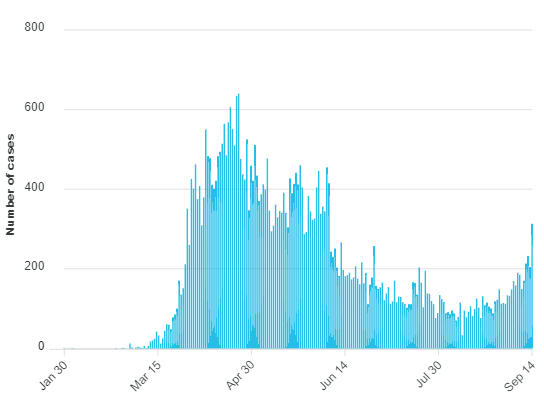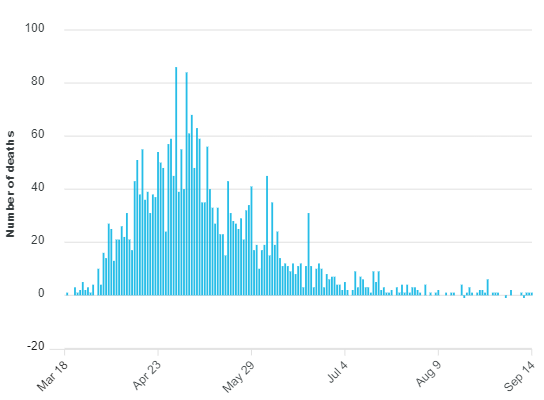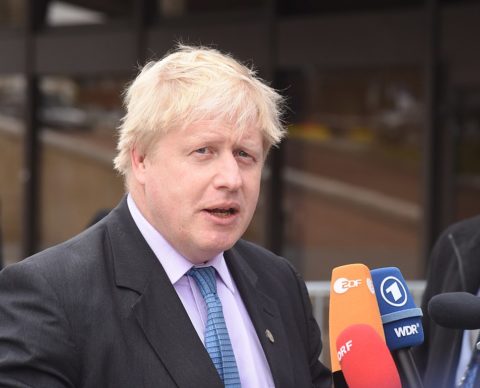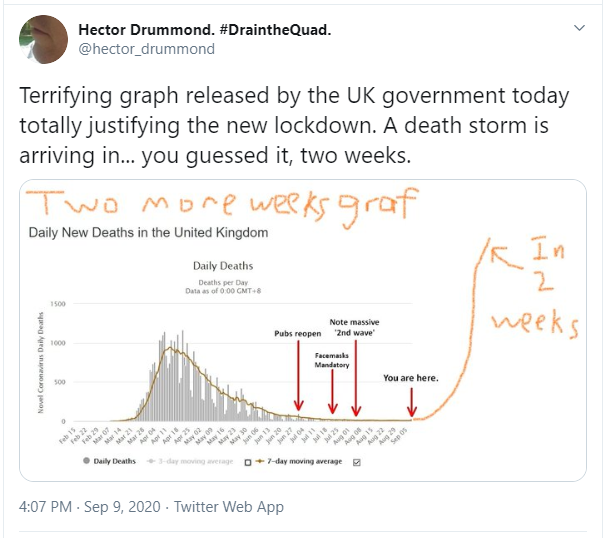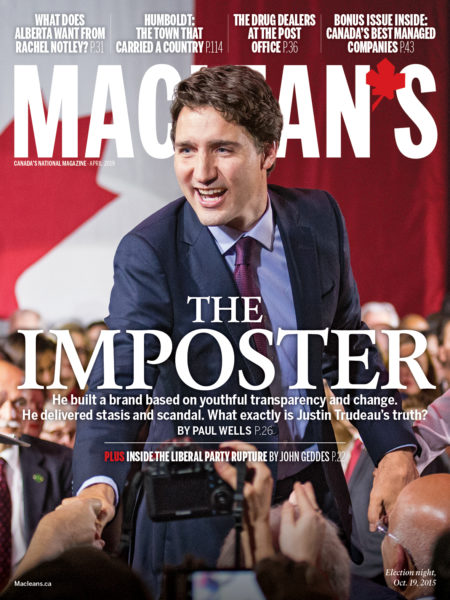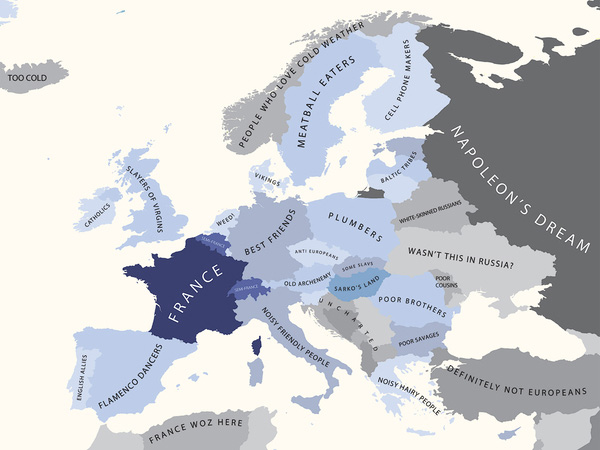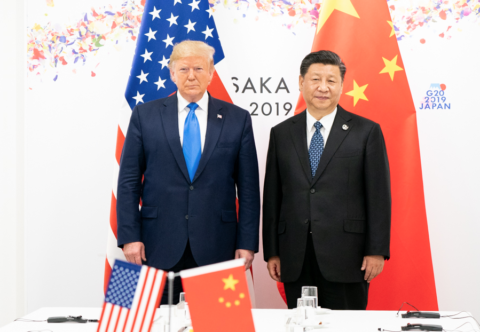In the most recent Libertarian Enterprise, Sean Gabb reports on a demonstration last month in London organized by Piers Corbyn which resulted in Corbyn being almost instantly fined £10,000 despite other, larger and more violent demonstrations not drawing any kind of judicial sanctions:

David Icke about to speak at Piers Corbyn’s 20 August anti-masking demonstration in Trafalgar Square.
Screencap from YouTube video – https://www.youtube.com/watch?v=DOZQ58uTWdw
The consensus at the demonstration appears to have been that the Coronavirus is some kind of fraud, and that the laws to stop its spread are really intended to carry us into a nightmarish New World Order tyranny. I disagree with this view. I believe instead that, looking back from one or two years, the Coronavirus Panic will be seen as a disaster for at least the British ruling class, and as somewhere between a blessing and nothing very bad for the majority of everyone else.
For the avoidance of doubt, I have no belief in the goodness of our ruling class. The Labour Party represents a new and hegemonic Establishment. The project of this Establishment is to bring about changes that are meant to be fatal to the traditional peoples of my country, and that will not be to the advantage of the groups they are supposed to raise up. Whether this project is evil or deluded is beside my present point, though it is probably something of both. There are two possible views of the Conservative Party. It may be worth supporting because, though willing to see it roll forward of its own momentum, the leaders do not want to hurry the project forward, but are mainly interested in personal enrichment. Or it may be a Potemkin opposition — gathering votes from the discontented, while self-consciously making sure those votes are wasted. Again, the exact truth is beside my present point. What does matter is that we go into every election less free and less at home in our country than at the previous election.
This being admitted, there is a loose connection between me and the speakers and attendees at Mr Corbyn’s demonstration. At the same time, there is a difference between cynicism and paranoia. As a cynic, I do not believe that everything untoward that happens is there to hurry the project of change. I do not believe that our ruling class is in charge of everything. I do not believe that it understands everything. Whatever its origin, the Coronavirus appears to have driven our various rulers into a genuine panic. Yes, Boris Johnson is a fool, and there is an army of the powerful who wanted an excuse to stop our final departure from the European Union. Yes, the Democrats were looking to upstage Donald Trump in time for the next American election. But this has not been a panic in just two countries. The Japanese cancelled their Olympic Games — losing them for the second time in eighty years. The Chinese brought four decades of economic growth to an end. The Indians and South Africans panicked. So did most of the Europeans. The panic was joined by ruling classes with no visible interest in putting the dreams of the Frankfurt School into practice.
Focussing on my own country, what ruling class institution has benefitted from the Coronavirus Panic? Look beyond the propaganda, and it is plain that the response of the National Health Service was a disgrace. Myriads of diagnoses and treatments were cancelled without good reason. We still have no dentistry. The public sector as a whole went on paid leave for six months. The schools closed and the teachers vanished — no great loss there, of course. Even if none goes bankrupt, dozens of universities will need to downsize — no loss there either. The police behaved throughout like fascist goons. Every institution set up or adapted to advance the project of change has emerged from the past six months revealed as broken and covered in ridicule. What sort of a planned crisis is it that ends in magnified cynicism and in paranoia that can fill Trafalgar Square on a Bank Holiday weekend? The general mood in this country is approaching what you see at the end of a lost war.
Or what associated commercial interests have benefitted? The politicised entertainment media is flat on its back. The commercial property sector is entering a melt-down. House prices in all the nice parts of London are going into a downward spiral. Public finances will be squeezed for years to come; and, given a choice between projects of change and a liveable dole, the electors are likely to make their wishes undeniable. Globalised patterns of trade have been disrupted, raising question marks over all the presiding global institutions. The last thing financial services needed was another big shock. As for the commercial beneficiaries, these are libertarian by default. For all that can be said against them, Jeff Bezos and Mark Zuckerberg have opened the media to anyone who knows how to use a computer keyboard. Their turn to corporate censorship has, at every step, been a response to outside pressure. Every one of these turns has been half-hearted and driven by a natural, if not always creditable, desire to continue growing richer. There is no particular benefit for the American and British ruling classes if Mr Bezos becomes a trillionaire and Richard Branson ceases to be a billionaire.
On a related note, Jay Currie points out that the media’s current laser-intense focus on reporting Wuhan Coronavirus cases allows the narrative to continue relatively undisturbed and which might be totally overthrown if they reported instead on deaths from the Chinese Batflu (H/T to David Warren for that useful epithet):
In the UK, France, Ontario and various other jurisdictions COVID case counts have risen at an alarming rate in the past few weeks. Unfortunately, mandatory masking and strict lockdowns seem to be the only tools governments feel they have in the face of case count surges.
It can be argued that the increasing case counts may be an artifact of more testing. Or a product of the sensitivity of the tests themselves; but the actual case numbers keep going up.
Our media, God bless them, at a national level seem to be entirely focused on case counts to the point where, in this CBC story on Ontario’s numbers, there is simply no mention of the “death count”.
Why could this be? Well, take a look at these two graphs from Ontario:
If you look at the top graph the sky is falling and masks, social distance, lockdowns, school closures and “stay at home” all make a lot of sense. If you look at the bottom graph, COVID is over.
In Montreal over this last weekend up to 100,000 people marched against mandatory masks. The mainstream media downplayed the turnout and suggested that there were all sorts of conspiracy theorists, Qanon believers, far right and Trump supporters marching. There probably were. But I suspect the vast majority of the marchers were responding to the disproportionate response of the Quebec government to graphs which look very much like Ontario’s.
People are more than willing to go along with governmental measures they can see the point of. “14 days to flatten the curve and prevent hospitals from being overwhelmed” made sense back in April. And the measures taken then may well have worked. But it is mid-September and the hospitals and their ICUs are not even slightly overtaxed.

